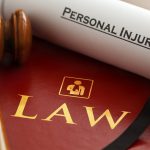Challenging a DWI Conviction with PCR
New Jersey takes a very strong stance against Driving While Intoxicated (DWI). If you are convicted with a second or subsequent offense, you are facing a harsh jail sentence and the loss of your driving privileges for an extended period of time. Many people think it is impossible to reverse a prior DWI conviction. But thankfully, there is a legal process that can overturn an offense in limited circumstances. A petition for post-conviction relief (PCR) is a request to the court that a prior DWI conviction be reversed. A successful PCR can keep the driver out of jail, reduce license suspension, and protect their future.
In New Jersey, a DWI is considered a traffic violation and not a criminal offense, so it cannot be expunged. A criminal record can haunt you for the rest of your life, making it difficult to obtain a job, housing, professional licenses, and damaging your reputation.
The purpose of a post-conviction relief is to challenge the conviction or sentence. Relief can be filed to demonstrate that your constitutional rights were violated and you were wrongfully convicted. The violation could have occurred during any phase of the criminal proceeding, including the investigation, arrest, pre-trial, plea hearing, trial, or sentencing. There is a general five-year time limit for filing a PCR, but it may be extended under certain exceptions. The court may waive the time limit if the purpose of the petition is to correct an illegal sentence or if it is to allege excusable neglect.
Conditions for Filing a PCR
Grounds for relief include:
- Significant denial of a constitutional right under the United States Constitution, New Jersey Constitution, or New Jersey Statute.
- The sentence was excessive and didn’t adhere to the law under which the sentence was imposed.
- The defendant’s guilt plea didn’t meet the requirements under New Jersey Rule 7:6-2(a). The court must determine that the defendant is voluntarily making the plea. The defendant must understand the charges and the consequences of pleading guilty.
- Ineffective assistance of counsel.
- Juror misconduct. A juror was bias, lied about their criminal record, conducted an independent investigation, or failed to reveal they knew the juror.
- The attorney failed to advise the defendant of a substantial conflict of interest.
- The defendant did not have a lawyer and the court did not find that the defendant had knowingly and intelligently waived the right to counsel.
Contact an Experienced New Jersey DWI Attorney Today!
Motions for post-conviction relief can be complicated and require the skills of an experienced criminal defense lawyer. Call DWI Attorney, John C. Iannelli, Attorney at Law, now for a free consultation at (856) 227-2434.






